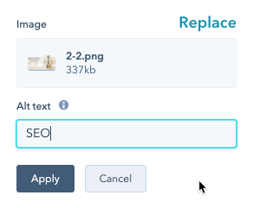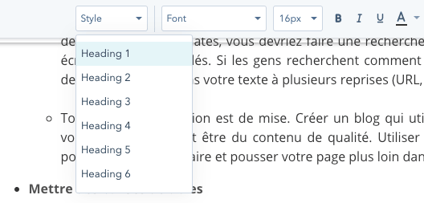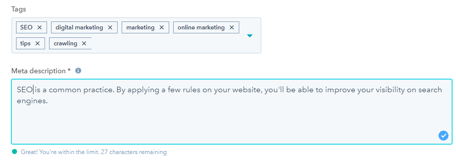
SEO (Search Engine Optimization) is a very common practice with the rise of digital marketing. Even if the public is less familiar with it, it’s easy to master the basics. By applying a few rules on your website, you will be able to improve your visibility on search engines and ensure that your site is well indexed.
What is SEO?
SEO is a website optimization tool. It allows your site to appear on search engines and, if used correctly, to appear higher in the results.
The 3 pillars of SEO are:
- Crawling
- Indexing
- Ranking
Google uses algorithms, like little robots, on websites to classify all the information available on the web. There are 3 steps to this research:
-
Crawling
Crawling is the process during which search engines find the numerous web pages that exist. The webpages are then added to their known list, so the search engine can decide if they should be shown in the search results.
-
Indexing
When they find the pages, their subjects and the information (video, images, links) they contain are analyzed.
-
Ranking
Then, a user will do a search and the results rankings will be done using the aforementioned algorithm linking the content of your page and the search being done. Google will take into account several pieces of information such as the language, the country, the content and the number of times that a page is cited or shared on other sites. When a page is shared a lot on other websites, it gives it more credibility, and the page is more likely to appear at the top of the results.
How to improve your SEO?
-
Create more quality content
- The more relevant content you create, the more likely you are to get high rankings. Each new page is an opportunity to appear as a response on a sought-after subject.
- Blogging can be a great way to deliver new quality content to your customers while helping you improve your SEO.
- Google tracks the amount of time spent on the web page and will see if the user returns to their search to find the information they are looking for elsewhere. That's why it's important to create content that is interesting to your target customers.
-
Add the alt attribute to your images

- When you have images on your page, you can add an alt description which helps crawl understand the content of the image. The alt should be simple and short in order to effectively describe the content of the image.
-
Confirm that keywords related to the subject are found on the page
- To optimize your page with keywords, you must first choose those that are related to the research users can do on your expertise, your services or your business. For example: if you are creating a blog post about tomatoes, you should search the web for what people might write as keywords. If people are researching how to cook tomatoes, the keyword cook or recipe should be included in your text multiple times (URL, title, paragraph, etc.).
-
- However, moderation is in order. Creating a blog that only uses keywords would hurt your ranking, remember that the page has to be quality content. Use a few keywords without exaggeration, otherwise Google could do the opposite of what you want and push your page further in the results.
-
Apply heading tags

- Heading tags are applied to text and help differentiate the heading hierarchy. Your main title should be categorized as H1 and subsequent subtitles as H2, H3, etc. Thanks to the heading tags, the text is more airy and readable, which will help your ranking.
-
Insert external links (resources, cite your sources)
- By inserting links to reliable external pages, trust is built with your readers. It also gives more context so that search engines can better understand your site's content. By inserting quality links, you also increase the credibility of your content.
-
Fill in the meta description tag

- The meta description tag allows you to customize the text that appears under your link in the search results. This text should include a few keywords related to your content, this will have a positive impact on your ranking.
With these few simple ideas, you can start creating content and improve your SEO. With a little time, you will see the fruits of your efforts. Don't hesitate to research and learn even more about SEO, it's a big topic.
Have fun!
https://blog.hubspot.com/marketing/seo-tips
Formation HubSpot
semrush.com/blog/outbound-links/